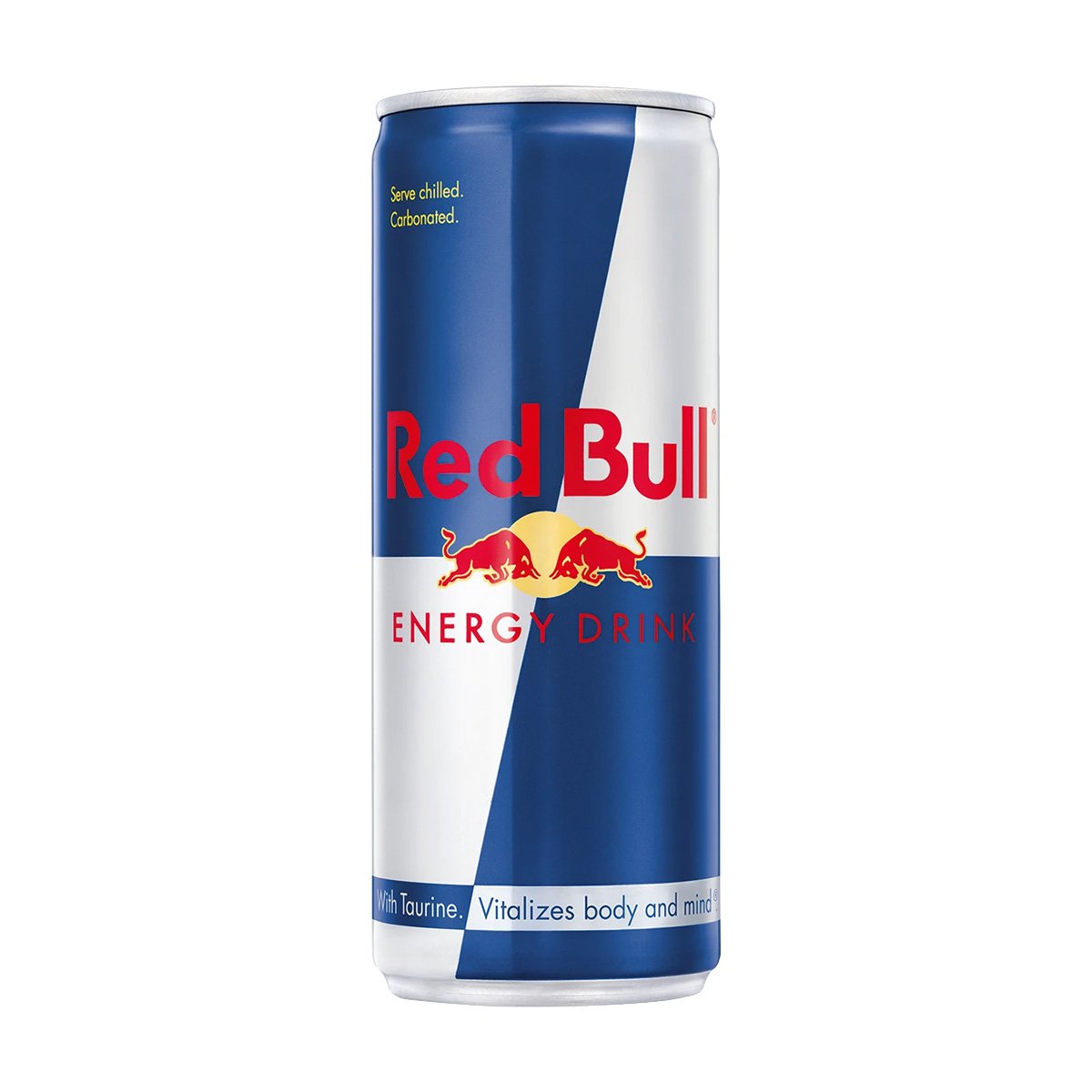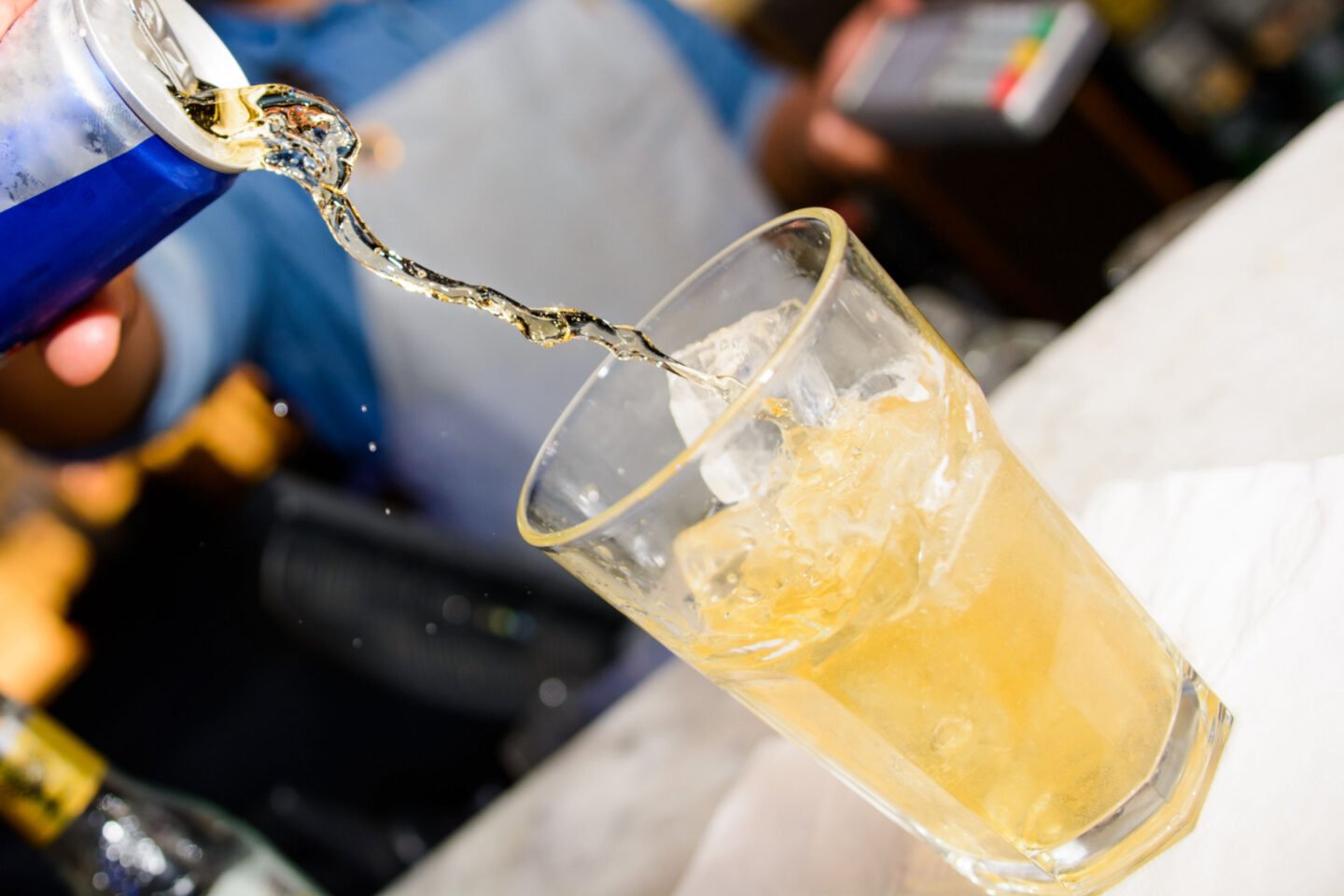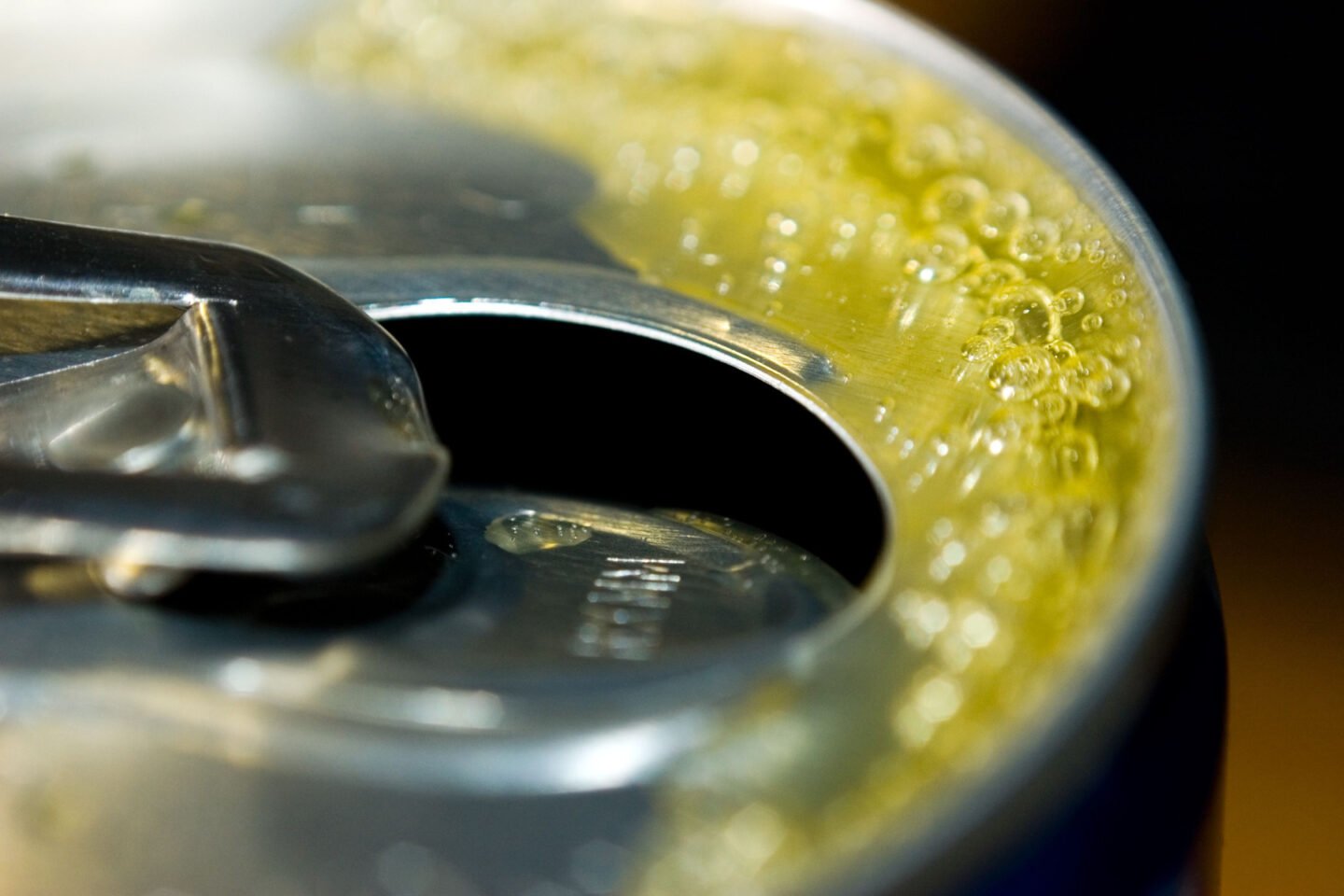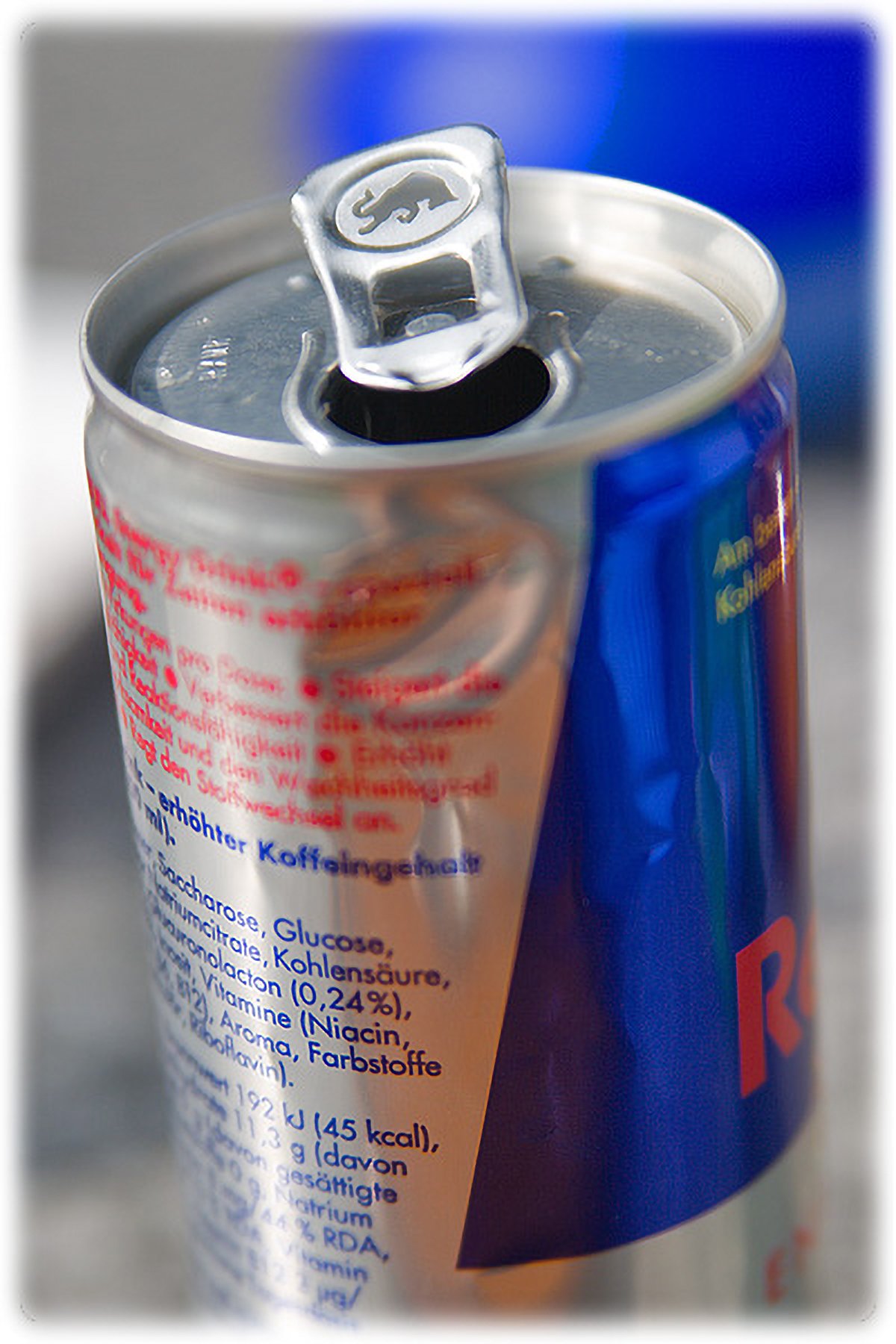Red Bull is the world's most popular energy drink that promises a quick energy boost. If you haven't had Red Bull before and wonder how long it takes for it to take effect and how long the effects last, you're on the right page.

It usually takes 10 to 15 minutes after consumption for Red Bull to take effect and peaks after 30 to 60 minutes. It starts to diminish after 3 to 4 hours and should last for up to 12 hours. However, some may experience a caffeine crash after hours of drinking it.
Read on as I discuss everything about Red Bull's effects.
Table of Contents
What Does Red Bull Contain?
Red Bull is the most popular energy drink, known for its ability to provide a quick boost of energy. The drink contains unique ingredients that increase alertness, improve focus, and reduce fatigue.
Let's take a closer look at the active ingredients and their nutritional value. One 8.4-ounce can of Red Bull (240 ml) contains the following active ingredients:
- Caffeine: 80 mg
- Taurine: 1000 mg
- Glucuronolactone: 600 mg
- B-vitamins (niacin, pantothenic acid, B6, B12)
Caffeine is a stimulant that can increase alertness and reduce fatigue. You can find caffeine in coffee, tea, and other energy drinks. Red Bull contains 80 mg of caffeine, which is roughly the same amount as a small cup of coffee, or 20% of the daily allowed caffeine consumption.
Taurine is an amino acid that is found in the human body and plays a role in various physiological processes. Experts link taurine to better nerve growth, increased energy metabolism, less oxidative stress, and muscle development.
Glucuronolactone is a naturally occurring compound produced by the human body. It enhances mood and mental performance and relieves stress.
B vitamins are a group of essential nutrients involved in many bodily functions, including energy production and brain function. Red Bull contains varying amounts of B vitamins, including niacin, pantothenic acid, B6, and B12.
How Long Does It Take For Red Bull To Work?

After drinking a can of Red Bull, it typically takes about 10 to 15 minutes for the caffeine and other active ingredients to start taking effect. However, the exact onset time can vary depending on several factors, including individual metabolism, body weight, and caffeine tolerance.
The effects of caffeine usually peak within 30 to 60 minutes after consumption. However, Red Bull Energy Drink contains other active ingredients that stimulate the body to use energy. That explains the faster effect.
It is worth noting that while Red Bull Energy Drink can provide a quick boost of energy, it is not a substitute for proper sleep and nutrition. Also, staying hydrated when consuming energy drinks is essential, since the high caffeine content can contribute to dehydration.
How Long Does Red Bull's Effects Last
Generally, the effects of a can of Red Bull start to diminish after around 3 to 4 hours, but some people may continue to feel the results for longer or shorter periods.
The half-life of caffeine, which is the amount of time it takes for the body to eliminate half of the caffeine, is around 5 to 6 hours in most people. This means that after 5 to 6 hours, the amount of caffeine in the body is reduced by half.
However, the exact duration can vary depending on factors such as metabolism, body weight, and caffeine tolerance.
Moreover, it can take up to 10 to 12 hours for the body to completely eliminate caffeine, although this can also vary based on individual factors.
It is worth noting that the effects of Red Bull and other energy drinks can vary depending on the amount consumed and individual factors such as tolerance to caffeine and other stimulants.
Effects of Red Bull: What Happens To Your Body

Red Bull is the world's most famous energy drink. As the name implies, Red Bull should provide an energy boost for those who need it.
However, increased intake could lead to other effects on the body. This section will discuss what happens to the body upon Red Bull consumption.
Note that you may or may not experience all of these effects, as this greatly depends on your body's tolerance to the ingredients.
Increased Alertness
Caffeine is a stimulant that can block the action of adenosine, a naturally occurring compound in the body that promotes sleep and relaxation. By blocking adenosine, caffeine can increase energy levels and alertness and improve focus.
Increased Heart Rate And Blood Pressure
Caffeine can also increase heart rate and cause high blood pressure, which can help to increase energy levels and promote feelings of wakefulness.
Improved Mood
Some people report that Red Bull and other energy drinks can improve mood and reduce feelings of fatigue. Energy drinks have a placebo effect on their consumers, as they expect their mood to improve even before the caffeine starts to kick in.
Dehydration
Caffeine is a diuretic, which means that it can increase urine production and lead to dehydration. Some studies suggest that the liquid content in energy drinks balances the diuretic effect. However, the high sugar content in Red Bull can exacerbate this effect.
Insomnia
Drinking Red Bull or other caffeinated beverages too close to bedtime can interfere with sleep and lead to insomnia. Experts advise that it's best to drink energy drinks 30 to 60 minutes before your workout and avoid drinking them late in the afternoon or at night.
Nervousness And Jitters

High levels of caffeine intake can cause nervousness and jitters, as well as other adverse side effects such as anxiety, headaches, and stomach upset. Since Red Bull contains high amounts of active ingredients such as caffeine and taurine, it messes up your nervous system.
Increased Risk Of Heart Problems
According to the American Heart Association, overconsumption of energy drinks and soft drinks with caffeine, especially when combined with alcohol or other substances, can increase the risk of heart problems such as arrhythmia, heart attack, and stroke.
Does Red Bull Cause A Caffeine Crash?
Yes, Red Bull can cause a caffeine crash. A caffeine crash, also known as a "caffeine comedown," is the experience of fatigue and lethargy that can occur after the effects of caffeine wear off.
This can happen because caffeine blocks the action of adenosine, which is a neurotransmitter that promotes sleep and relaxation. When the effects of caffeine wear off, the brain can experience a rebound effect, causing adenosine levels to increase and leading to feelings of tiredness and fatigue.
The amount of caffeine needed to cause a caffeine crash can vary depending on individual factors such as body weight, tolerance to caffeine, and the source of the caffeine.
However, consuming more than 400 milligrams of caffeine daily can increase the risk of adverse side effects, including a caffeine crash.
Although Red Bull energy drink only contains 80 milligrams of caffeine, other factors, such as the added sugar in Red Bull or the consumption of other caffeinated beverages or supplements, can also contribute to the risk of a caffeine or sugar crash.
Red Bull Shelf Life

The shelf life of Red Bull is typically around 12 to 18 months from the date of production, depending on the storage conditions. Red Bull GmPh claims it's safe to consume Red Bull products for up to 24 months after production.
It is essential to store Red Bull in a cool, dry place away from direct sunlight and heat. Exposure to high temperatures can cause the product to deteriorate more quickly, reducing its shelf life.
Does Red Bull Expire?
Like any other food or beverage, Red Bull can expire. While Red Bull does not have an expiration date, it has a "best before" date that indicates the date before the product is at its optimal quality.
How To Tell If Red Bull Has Gone Bad
The best way to tell if a Red Bull energy drink has gone bad is by looking at its manufacturing date and the “best by” date. Additionally, if the can is damaged or shows signs of swelling, it may indicate that the product has gone bad.
Other signs that Red Bull may have gone bad include an off taste or odor, changes in color, or the presence of visible mold or other contaminants. If you notice any of these signs, it is best to discard the product and not consume it.
Moreover, an opened energy drink usually lasts 2 to 4 days in the fridge, but you should expect changes in how it tastes as the carbon dioxide evaporates.
Related Questions
Monster Energy's effects last longer than those of Red Bull as it contains more sugar and caffeine. Monster Energy Drink contains 160 milligrams of caffeine, twice that of Red Bull.
Red Bull and diet coke contain caffeine, added sugar, and artificial sweeteners. Red Bull, on the other hand, has ingredients like taurine and B vitamins that boost energy.
Red Bull Original, Red Bull Total Zero, Red Bull Sugarfree, Red Bull Orange Edition, Red Bull Yellow Edition, Red Bull Green Edition, Red Bull Amber Edition, Red Bull Blue Edition, and Red Bull Silver Edition all contain 80 milligrams of caffeine.
An energy drink and a sports drink are similar in that they contain the same list of ingredients. You can use Red Bull as a sports drink before a game or a heavy workout.

Leave a Reply